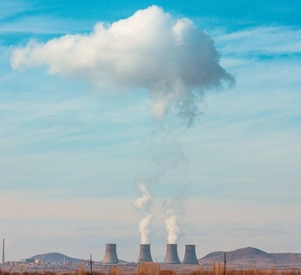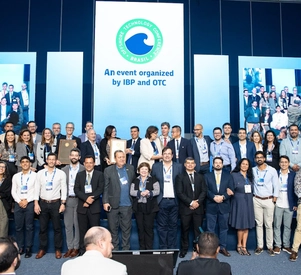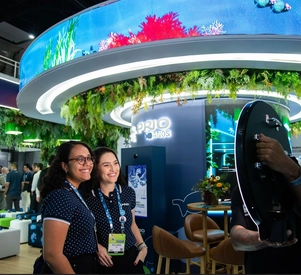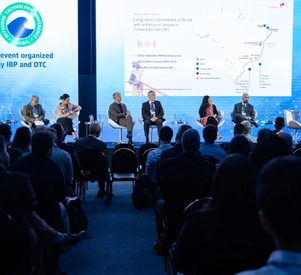Representation
Exploration and Production (E&P) is one of the strategic pillars of the IBP, operating in the first link of the oil chain – the stage that launches the entire value journey of the sector.
With an active presence and qualified voice, the Institute brings together executives from member companies and experts from its technical team in councils and committees that discuss and propose solutions to regulatory, tax, and environmental issues and ways to stimulate the domestic industry that supplies goods and services.
This includes dialogue with government agencies at all levels, including the executive and legislative branches, regulatory agencies, and industry entities, as well as the judiciary, participating as amicus curiae.
Through projects and recommendations, the IBP works to maximize investment results, attract new companies, and increase the resources allocated to Brazil – always with a focus on competitiveness, innovation, and sustainable development. Attentive to developments in the energy scenario, the Institute works to integrate oil and gas production with energy transition initiatives, encouraging the development of low-carbon solutions and contributing to a more balanced and responsible future in the use of natural resources.
Maintenance of the Exploratory Block Auction Calendar
The planning of oil companies and their suppliers relies on the maintenance of this calendar for the continued discovery of new reserves and the advancement of knowledge about Brazilian sedimentary basins, with the consequent attraction of investments to the country.
Environmental Permitting, SMS, and Operations
Environmental permitting is an essential step for oil and natural gas exploration and production activities, which require a high level of technical rigor. In this context, the IBP acts strategically to promote more agile, predictable, and efficient processes, in constant dialogue with environmental agencies, governments, and civil society. Thus, the IBP is committed to reconciling economic development, energy security, and environmental preservation, promoting regulatory improvements and simplifications, institutional integration, technological innovation, and good practices aligned with a fair and responsible energy transition, always guided by sustainability, technical excellence, and respect for the environment. Through its Committees and Working Groups, such as SMS, Operations and Decommissioning, promotes exchange among members, strengthening representation and collaboration within the industry, facilitating the exchange of experiences and the drafting of strategic documents, such as the Good Practice Notebooks (e.g., Guidelines for Subsea Engineering, Well Integrity, Well Abandonment, Asset Transfer). These initiatives not only consolidate technical knowledge, but also inform contributions to public consultations, industry positions, and advocacy actions to improve industry regulation
Legal, Regulatory, and Tax Certainty
Industrial projects require billions in investments and maturation cycles that can exceed two or three decades. In this context, legal certainty is a key requirement for preserving contracts and rights over time, reducing risks and strengthening investor confidence.
Similarly, regulatory certainty—translated into clear, stable rules that are aligned across different agencies and levels of government—is crucial to ensuring transparency without creating overlaps or technical uncertainty.
In the tax field, the stability and clarity of tax rules—including special regimes such as REPETRO—are vital to preserving Brazil's competitiveness vis-à-vis other producing countries. Abrupt changes in the tax landscape can compromise the economic viability of projects and deter investment.
The IBP advocates for predictable rules and respect for legal and regulatory frameworks as essential elements for ensuring a stable and attractive business environment for investment in the oil and gas sector.
Development, Innovation, and Competitiveness in the Supply Chain
The IBP supports efforts aimed at consolidating a competitive supply chain, both nationally and internationally, through public policies focused on competitiveness and innovation that promote the accumulation of productive and technological capabilities in domestic industry companies.
Advocacy
Defending the interests of the oil, natural gas, and biofuel industries is one of the pillars of the IBP's work, through strategic and technical engagement with the executive and legislative branches at all levels, with transparent and proactive dialogue. This way, the IBP seeks to actively contribute to the formulation of public policies and regulatory frameworks that promote legal certainty, predictability, and an environment favorable to long-term investments, stimulating and driving innovation and a sustainable energy transition that generate value for Brazilian society.
-
Panorama geral do setor de Petróleo e Gás: uma agenda para o futuro
Committees
- Comptrollership Affairs (Accounting) Committee
- Tax Affairs Committee
- Legal Affairs Committee
- Local Content Committee
- Onshore E&P/Shallow Waters Committee
- Human Resources Committee
- SMS (HSE) Committee
- Operations Committee
- External Affairs Committee
- Navigation Committee
- Technology and Innovation Committee
- Decomissioning Committee
- Natural Gas Committee
-
Learn more about the Committees
If you are interested in participating in any of ABEP's Technical Committees, which are exclusive to member operators, please contact us at diretoriaexecutivaeep@ibp.org.br.
The IBP's natural gas division works to promote the development of a more competitive and sustainable industry, generating benefits that are widely recognized by society. With the support of experts from member companies, who meet in working groups and committees, the natural gas department works to improve regulation and foster a business environment conducive to attracting investment throughout the natural gas value chain in Brazil.
How does the IBP protect the natural gas sector?
By seeking to represent the interests of natural gas producers at the federal and state levels, actively participating in consultations and public hearings, and interacting with the legislative and executive branches. The IBP maintains ongoing dialogue with agencies such as the ANP, EPE, MME, MDIC, the House of Representatives, the Senate, and state regulatory agencies.
This institutional role is aligned with its mission to promote progress in the energy sector. Its focus is on developing a modern, efficient, and diversified natural gas market, guided by the following pillars:
- Clear and stable regulatory environment
- Market opening, diversity of players, and incentives for competition
- Harmonization of state and federal rules
- Fostering efficiency, competitiveness, and innovation
- Legal certainty and investment attraction
The IBP is also involved in strategic initiatives with other industry associations such as The Free Gas Market Ranking (RELIVRE), created in partnership with ABPIP and ABRACE, which evaluates state regulations aimed at opening the free gas market. Another highlight in this sense is the participation of the IBP in the User Council (CdU), created in partnership with ABPIP, ABRACE, ABEGÁS, ABRAGET, and ABRACEEL to comprehensively monitor the performance, operational efficiency, and investments made by gas transportation companies.
Strategic axes
The sector's activities are guided by long-term structural topics that ensure consistency and relevance in institutional advocacy, which are:
- Open and competitive market: advocating for the enforcement of Law 14,134/2021;
- Regulatory harmonization: alignment between federal and state rules, respecting the powers of each sphere;
- ANP regulatory agenda: active participation in public consultations to transform legal principles into effective, clear, and stable rules;
- Appropriate tax regime: development of tax solutions in line with the new dynamics of the sector;
- Access to essential facilities: defense of negotiated and non-discriminatory access to essential infrastructure (transportation, processing, LNG, and storage);
- Transportation segment: representation of gas producers/shippers with a focus on improving regulation and transportation contracts
- Usage of pre-salt gas: support for the technical and economic autonomy of agents with a view to greater efficiency in hydrocarbon recovery.
Public value generated
The IBP's work contributes directly to the development of a more open, efficient, and competitive natural gas market. The benefits for society include greater energy security, cost reduction, attraction of investment, job creation, and strengthening of the country's competitiveness.
Relivre
The Free Gas Market Ranking (RELIVRE) is a tool for monitoring state regulations on the free natural gas market.
It is a ranking jointly compiled with agents from different links in the chain – producers (IBP and ABIPIP) and large consumers (ABRACE) – which assesses the regulatory aspects of each state that are most relevant to the effective opening of the natural gas market.
For more information, check the official homepage.
User Council
The User Council (CdU) contributes to improving the regulation and operation of the natural gas transportation system by monitoring regulatory developments, tracking investments, associated costs, and the services offered by carriers, always seeking to ensure reasonable rates.
For more information, check out the official homepage.
Good Practices Handbook
-
Diretrizes para acesso a unidades de processamento de gás natural - UPGN
-
Diretrizes para acesso de terceiros à infraestrutura de escoamento de gás natural
Gás Natural Technical Committee
Working Groups:
- Pre-Salt Gas Usage
- Biomethane
- Market Design
- Specification
- Facilities
- Natural Gas and Electric Power Integration
- Transportation
- Distribution
- Legal Gas
- Gas Taxes
In the oil and gas industry, the Downstream segment represents the final stage of the production chain. It follows the exploration and production stages of crude oil and natural gas (Upstream), as well as the transportation, treatment, and processing of these inputs (Midstream), including the transformation of oil into derivatives in refineries and the processing of natural gas in Natural Gas Processing Units (NGPU).
Downstream activities focus on the transportation, storage, distribution, and marketing of derivatives such as fuels and biofuels, petrochemical naphtha, aviation kerosene, liquefied petroleum gas (LPG), and other products. It should be noted that, in some literature, oil refining is classified as part of Midstream; however, in more simplified classifications, it is considered part of Downstream.
It is a complex chain that requires a high degree of integration and coordination between various agents to ensure that products arrive safely, efficiently, and with high quality at fuel stations, airports, industries, and homes.
It is also in Downstream that two strategic sectors of the Brazilian economy — agribusiness and oil and gas — connect, especially through the mandatory blending of biofuels with fossil fuels, such as gasoline and diesel.
With the enactment of the Fuel of the Future Bill, this interaction is likely to deepen, expanding the supply of inputs to refineries that operate with the co-processing of fossil and renewable raw materials and, in the future, to supply plants dedicated to the production of advanced biofuels, such as SAF (Sustainable Aviation Fuel) and HVO (Hydrotreated Vegetable Oil).
How does the IBP work in defending the Downstream sector?
The IBP works directly or in conjunction with different players in this chain—such as refiners, distributors, logistics operators, lubricant and biofuel producers, among others—to defend a competitive, fair, ethical, and sustainable business environment. Through an integrated and specialized structure — with the support of committees formed by professionals from member companies — the Institute articulates, debates, and proposes strategic solutions aimed at attracting the necessary investments for the development of this segment, which is crucial to the well-being of society.
This ongoing work aims to build and disseminate knowledge, shape public policy, promote regulatory improvements, and strengthen the relevance of the Downstream sector among a wide range of stakeholders, including the executive and legislative branches, industry associations, and Brazilian society.
To achieve this goal, our work is guided by three key pillars:
- Ethics and transparency
- Open and competitive market
- Legal and operational certainty
- Contract enforcement and copyright
- Regulatory Tracking
- Tax equity
- Investment safety
Strategic axes
The work in this area is structured around strategic topics that guide the areas of action and institutional positioning, which are:
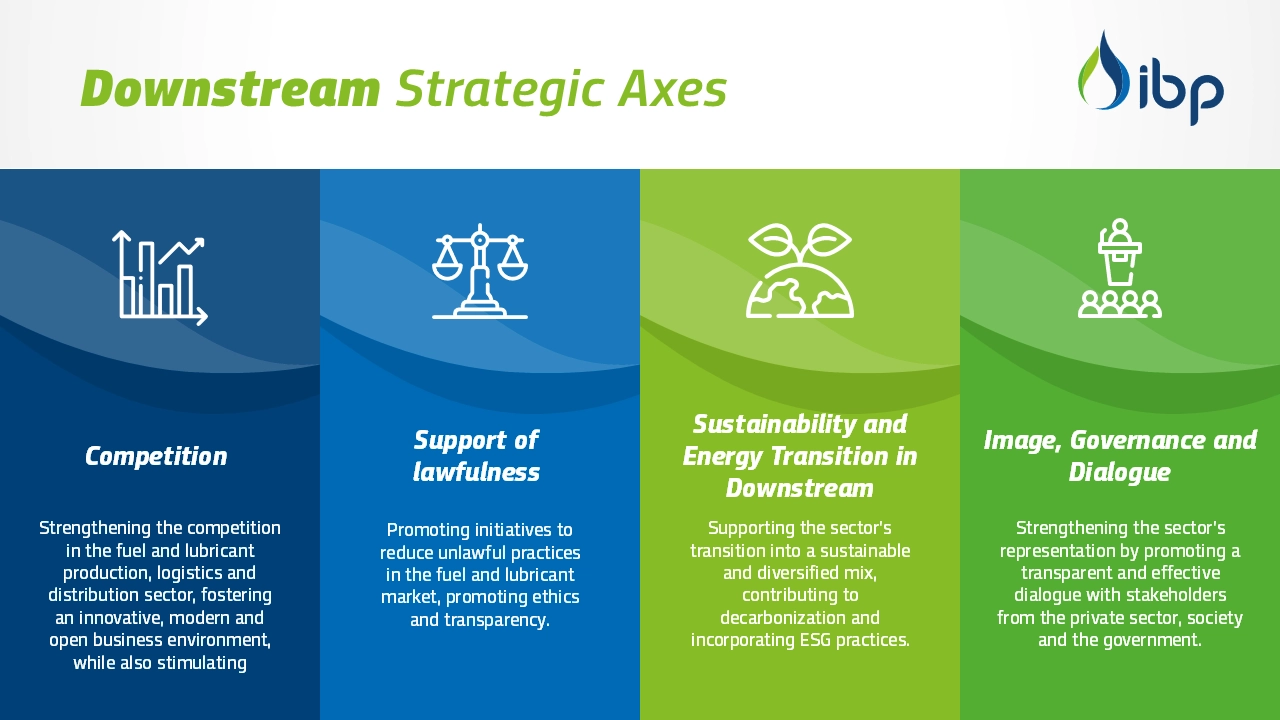
Public value generated
IBP's activities in the Downstream sector contribute directly to Brazil's economic and social development, providing benefits such as job and income generation, the supply of quality products at potentially more competitive prices, reduced fraud and greater consumer confidence, a push for energy transition with a lower carbon footprint, strengthening dialogue with society and public institutions, and the dissemination of good governance, sustainability, and ethical practices, among others.
Among the key issues already addressed and still on the agenda are:
- Market Evolution
- Energy Transition
- ESG
- Defending competition and tackling irregularities
- Quality Assurance
- Tax Simplification
- Fuel of the Future
- Renovabio
- Aviation
- Infraestructure Plan
- Supply Security
Check out the latest related news
The Technology and Innovation Management department at the IBP is responsible for strengthening the research, development, and innovation (RD&I) agenda in the oil, gas, and energy sector, positioning the IBP as a leader in technological transformations in the industry.
We are focused on connecting the real challenges of the industry with innovative solutions developed by startups, universities, ICTs, hubs, and companies in the energy chain. We also work to strengthen governance, produce technical content, build talent, and advocate for public policies that promote an innovation-friendly regulatory environment.
What we do:
- Promote a culture of innovation throughout the entire energy sector chain;
- Track technological and regulatory trends, preparing reports and strategic studies;
- Facilitate access to funding sources, tax incentives, and innovation networks;
- Connect the productive sector to academia and the entrepreneurial ecosystem, promoting collaboration and value generation;
- Curatorship of events, courses, and technical workshops, disseminating cutting-edge knowledge to the industry.
Management also coordinates the Technology and Innovation technical committee and working groups focused on topics such as OT-IT Convergence, Data Management, Additive Manufacturing, and Innovation Culture and Skills, contributing to the development of solutions aligned with digitization and energy evolution.
iUP – The IBP’s Energy Innovation Hub
iUP is the IBP's innovation and energy hub. Created to connect talent, ideas, and technological solutions to industry challenges, iUP serves as a strategic platform that brings together companies, startups, universities, and government bodies.
Our purpose
- Foster collaboration among players in the innovation ecosystem, promoting solutions aimed at decarbonization, energy evolution, and digitization of the sector;
- Attract new talent and entrepreneurs to the energy industry;
- Turn Brazil into a global benchmark in innovation and technology in the oil, gas, and energy industry.
Connected Startups Program
Startups are leading the transformation of the industry—and the oil, gas, and energy sector is no different. They bring agility, creativity, and innovative technological solutions to complex challenges, accelerating the journey toward a more efficient, sustainable, and digital sector.
Through iUP, the IBP believes in the potential of startups and opens the door for their active participation in the innovation ecosystem. We promote the integration of these new players through events, panels, business rounds, and structured programs, connecting promising ideas with key industry players.
Reasons to join
- Visibility and networking with major companies in the sector;
- Opportunity to participate in IBP technical committee meetings and working groups;
- Access to real business opportunities and strategic challenges;
- Participation in programs such as Technology Showcase, Matchmaking, among others.
If you represent a startup with solutions for the energy sector, this is your chance to be part of a network that drives real innovation.
Click here and talk to our team to learn how to become a member of the IBP and participate in the Connected Startups Program.
Join the IBP Technical Communities
Innovation takes place in networks, and the IBP offers several collaborative spaces for you to connect, learn, and build the future of the industry:
- Digital Transformation Advisory Board
- Technology and Innovation Committee
- Technical Thematic Groups, focusing on:
- Innovation Skills and Culture
- Data Management
- OT-IT Convergence
- Additive Manufacturing
Visit the IBP Communities Portal and join the discussions that are shaping the future of the energy sector.
Technical commissions
If you are interested in participating in any of the IBP technical committees or working groups, please contact the Relationship Area.
Excellence and responsibility in serving society. This was the driving principle behind the creation of the IBP's Social Responsibility department in 2002, now rebranded as Sustainability.
With the support of the Technical Committees on Social Responsibility, Climate Change, ESG, SMS, and Diversity, Equity, and Inclusion—which are part of this front—the IBP promotes a competitive, ethical, diverse, socially and environmentally responsible oil and gas industry, aligned with a fair, equitable, and orderly energy transition, with a focus on the protection of human rights.
The Sustainability Management team, backed by the legitimacy of the aforementioned Technical Committees, promotes a series of actions based on analyses, indicators, opinions, studies, technical notes, position statements, defense of regulatory interests, good management practices, and thematic curatorship for courses, events, and publications. These initiatives aim to disseminate knowledge and promote the exchange of experiences to enhance sustainable development practices in business management, where economic growth, environmental protection, and social inclusion go hand in hand.
In line with its mission to drive the energy transition to a low-carbon economy, integrated with social, environmental, and cultural dimensions, the Institute fosters initiatives that balance economic development, sustainability, and inclusion.
In this context, the IBP formulates and shares proposals for the continuous improvement of sustainability practices in the sector, generating benefits for the whole society.
We establish strategic partnerships, promotes the exchange of information with national and international entities, and strengthens institutional recognition among similar organizations and regulatory bodies.
The Sustainability sector also plays a leading role in curating important events in the sector. A pioneer in creating of thematic arenas on ROG.e — such as the Social Responsibility Arena — the IBP has brought industry stakeholders to the center of the debate, promoting, with the support of Technical Committees, meetings such as ESG Energy and Business, the Renewable Energy and Biofuels Arena, and the Diversity, Equity, and Inclusion Forum, among others. Now, it is innovating once again by leading the IBP's participation in the UN Conference of the Parties (COP).
Enhancing the Practice of Sustainability
Sustainability brings value to companies, reduces social and environmental impacts, lowers investment risks, and ensures the industry has a license to operate. This process includes stuff like philanthropy, strategic social investment, working with stakeholders, human rights, transparency, ethics, and more.
The IBP serves as a strategic coordinator of the sustainability agenda in the oil, gas, and energy sector, promoting dialogue between member companies, government agencies, and society, and working on regulatory aspects in the areas of health, safety, the environment, climate change, and energy transition. Our commitment is to drive sustainable development based on economic growth, social and environmental responsibility, and innovation.
Among the pillars of this initiative, we can highlight:
- Technical benchmarking with other industries and international organizations;
- Multiclient projects, which optimize resources and generate more impact;
- Curatorship and technical guidance in educational projects, events, and specialized publications;
- Active dialogue between different agents in the energy ecosystem, strengthening joint action by member companies.
Through these fronts, the IBP actively contributes to positioning the industry as a leader in building a low-carbon, ethical, inclusive, and competitive economy.
Technical Committees
- Social Responsibility Committee
- Climate Change Committee
- ESG Committee
- SMS Committee
- Diversity, Equity and Inclusion Committee
-
Learn more about the committees here

Technical Commissions
If you are interested in participating in any of the IBP technical committees, please contact the Relationship Area.
The Brazilian Institute of Oil and Gas (IBP) plays a key role in establishing and maintaining standards governing the oil, gas, and biofuel production chain in Brazil. Its activities in the area of standardization began in March 1958, just four months after its founding, with a few subcommittees on oil and the work of the Terminology Committee. It was during this period that the IBP established its first contact with the Brazilian Association of Technical Standards (ABNT), initiating a technical cooperation that would grow stronger over the years.
In 1998, the IBP was accredited by the ABNT as a Sectoral Standardization Body for Petroleum (ONS-034). With this designation, the IBP has already prepared more than 780 normative documents, of which more than 250 are currently in force, serving as a reference for ensuring operational safety and efficiency, product quality, management compliance, and environmental protection.
The Structure of Standardization
The standardization conducted by the IBP is the result of collaboration between more than 280 experts, gathered in eight active Study Committees covering the following critical areas:
- Asphalt
- Fuels and Special Products (CPE)
- Lubricants
- Fuel Distribution and Storage (CEDAC)
- Land Pipelines
- Maritime Fuels
- Ethanol
- Biodiesel
-
Learn more about commissions
-
ONS-34 Standards
Importance of Standardization in the Oil and Biofuels Sector
Technical standardization, managed by the IBP, goes beyond simple standardization of procedures. It is vital for the promotion of practices that ensure the integrity and efficiency of industrial processes, ensuring that operations are carried out in a safe, economical, and environmentally responsible manner. Well-structured technical standards provide a reliable basis for the sustainable development of the industry, which is vital for the competitiveness of the Brazilian sector on the global stage. These standards create a favorable environment for innovation and the adoption of new technologies, while establishing strict performance and safety criteria. This way, both operators and regulators have a clear point of reference to ensure that operations comply with the highest international standards.
International Participation and Integration
In addition to its national activities, the IBP has represented Brazil on the Technical Committee on Petroleum Products and Related Products, Fuels and Lubricants from Natural or Synthetic Sources of the International Organization for Standardization (ISO/TC 28) since 2006. Such international presence reinforces the importance of the standards developed by the IBP, which contribute to the harmonization of global criteria and strengthen the competitiveness of Brazilian industry abroad.
In 2024, IBP expanded its activities and was accredited to participate in the Technical Committee on Pipeline Transport Systems (ISO/TC 67/SC 2), a crucial area for the safe and efficient transportation of fuels and derivatives. In addition, the IBP seeks integration with other ABNT national committees and with foreign standardization bodies, such as ASTM (American Society for Testing and Materials), ASME (American Society of Mechanical Engineers), and API (American Petroleum Institute).
This collaboration is essential to ensure that national standards are aligned with the highest international standards, ensuring the competitiveness of Brazilian industry at a global level.
+65 years of Standardization
The technical standardization management carried out by the IBP is one of the main guarantees that the oil and biofuel sector in Brazil operates with high standards of quality, safety, and efficiency. These standards not only enable alignment with international best practices but also promote innovation and sustainability, which are essential for the sector's continued evolution.
In 2023, the IBP's standardization sector celebrated 65 years of activities, celebrating its legacy and ongoing contribution to the development of the oil and biofuels sector in Brazil.
-
Timeline Image
We believe in the transforming power of youth
Young people don't just propose new ideas, discuss trends, and share solutions; they roll up their sleeves and get to work to turn the future into something more sustainable, innovative, and positive.
The oil and gas industry faces constant challenges—from technological advances to the urgent need to respond to socioeconomic demands more efficiently and competitively. One of the biggest challenges today is the transition to a cleaner and more inclusive energy mix, with a focus on decarbonization and sustainable development.
We believe that young people are key to this process. It is young professionals who can accelerate the energy transition, combining purpose, technology, and social engagement to redefine the industry's role in the future of the planet.
To drive this replenishment of talent, the IBP invests in initiatives aimed at young people who want to make a difference. Learn more about the IBP's Youth Program and find out how you can be part of this transformation.
Events
To boost the careers of young leaders, the IBP holds a series of in-person and online lectures, coordinated by the Youth Committee, addressing current and relevant industry topics—not only technical, but also economic and political. Initiatives such as Mentes de Energia (Energy Minds) and Uma Jornada Até o Topo (A Journey to the Top) connect young professionals with established experts, promoting the exchange of experiences and ideas and creating a rich networking environment that brings together professionals from different backgrounds and with different profiles. Follow our events calendar to learn more.
Youth Platform
The Youth Platform, held since 2022, is a mentoring program aimed at young people up to 35 years of age who want to build a solid career in the oil and gas industry. Through a public call for applications, selected participants are paired with guest mentors—professionals with different backgrounds and extensive experience in the sector. Running for approximately six months, the program includes individual and group meetings, with guidance on the market and professional development.
Energia Jovem
With the expansion of digital platforms and new communication formats, the Youth Committee created Energia Jovem, a podcast that promotes lighthearted and informative conversations with experts from various areas of the industry. The goal is to bring young people closer to the sector and disseminate knowledge in an accessible and up-to-date manner.
Partnerships
To bring together and empower young people in Brazilian and the international industry, the IBP has the support of partners from different segments, broadening discussions on technical, political, economic, and leadership issues. Every year, the Institute supports events held at leading Brazilian universities, helping to promote the inflow of young people into the O&G market. In addition, the IBP opens its headquarters to national and international academic partners for technical visits and to learn more about its activities.
Would you like to schedule an academic visit or secure the IBP's presence at an event?
Contact the IBP Knowledge Management team at comissoes@ibp.org.br

Young Committee
To learn about other initiatives aimed at young people, please contact the IBP Knowledge Management team.

